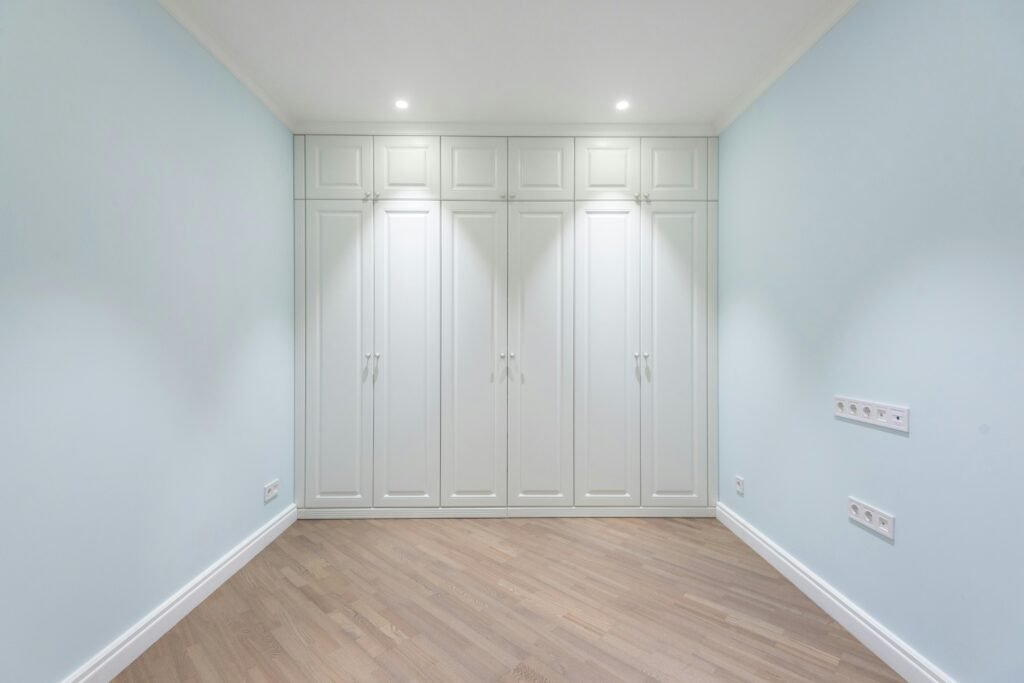
Introduction to Empty Spaces
In the ever changing landscape of a fast paced world, the concept of empty spaces may initially seem unproductive or even daunting.
Yet, these gaps in our schedule can offer invaluable opportunities for introspection, creativity, and mental clarity.
Embracing empty spaces can be game changing in how we navigate our daily lives.
The idea of harnessing the Creative Potential of Silence and Stillness is often overlooked in favor of constant activity.
We fill our calendars to the brim, thinking that productivity is solely a measure of how much we can do in a day.
However, intentionally creating space for quiet moments can be just as powerful, if not more so.
These moments allow our minds to rest and reset, providing a fertile ground for new ideas to sprout.
One key aspect of these empty spaces is the absence of distractions.
In the absence of noise and activity, our brains can shift from a state of constant reactivity to one of reflective thought.
This shift can lead to deeper insights and more creative solutions to problems we face.
For instance, many artists and writers have found that their best ideas come not when they are actively seeking them, but when they allow their minds to wander freely in silence.
Moreover, empty spaces give us a chance to connect with our inner selves.
When we step away from the constant bombardment of information and social interactions, we create a mental and emotional distance that allows for self reflection.
This can lead to a better understanding of our goals, desires, and the steps we need to take to achieve them.
It’s during these quiet moments that we often find the clarity and motivation to pursue our true passions.
In addition to mental and emotional benefits, the physical act of creating empty spaces can also lead to improved well being.
Taking breaks throughout the day to simply sit in silence or take a quiet walk can reduce stress and improve overall health.
These practices give our bodies and minds the time they need to recharge, making us more effective and resilient in the long run.
The Power of Empty Space in Daily Life is not just a philosophical idea but a practical tool that we can use to improve various aspects of our lives.
Whether it’s through moments of silence, periods of absence, or unoccupied intervals, these empty spaces offer a unique source of strength and creativity.
By incorporating these practices into our routines, we open ourselves up to a world of possibilities that might otherwise remain untapped.
Understanding the value of these empty spaces is the first step towards leveraging them for personal and professional growth.
As we continue to explore the potential of silence and stillness, we find that these moments are not empty at all, but rather full of untapped potential waiting to be discovered.
The Role of Silence

Silence offers a unique opportunity to disconnect from the relentless noise and chaos that often fills our days.
When we are enveloped in quiet, our minds have the liberty to drift, explore new thoughts, and innovate without interruption.
This state of tranquility is not just a reprieve but a fertile environment where creative ideas can flourish.
Many notable figures have recognized the importance of silence in their lives.
For example, Steve Jobs frequently took long, silent walks to contemplate and brainstorm, which led to groundbreaking ideas in technology.
By integrating periods of silence into their routines, they could tap into their deepest thoughts and insights, leading to significant breakthroughs.
Silence is also an excellent tool for enhancing focus.
In the absence of external noise, we can direct our attention more efficiently to the tasks at hand.
This heightened focus allows us to engage more deeply with our work, boosting both productivity and the quality of our output.
For instance, authors often retreat to quiet, isolated places to write, as the lack of distractions enables them to immerse themselves fully in their creative processes.
Additionally, silence can serve as a powerful means of emotional regulation.
When we take time to be still and silent, we can process our thoughts and feelings more effectively.
This self awareness helps us manage stress, reduce anxiety, and approach challenges with a calmer, more composed mindset.
By regularly incorporating silence into our lives, we cultivate a habit of introspection that can lead to better emotional health.
Another significant aspect of silence is its impact on our decision making abilities.
When we are constantly surrounded by noise and activity, our decision making can become hasty and reactive.
Silence, on the other hand, provides the mental space needed to weigh options carefully and consider various perspectives.
This thoughtful approach often leads to more informed and beneficial decisions, both in our personal and professional lives.
Furthermore, silence can deepen our connections with others.
In moments of quiet, we become more attuned to non verbal cues and the subtleties of communication, enhancing our empathy and understanding.
This can lead to more meaningful and authentic relationships, as we are better able to listen and respond to the needs of those around us.
Incorporating silence into our daily routines doesn’t require significant changes.
Simple practices like starting the day with a few minutes of quiet reflection, taking breaks to sit in silence, or ending the day with a moment of stillness can make a profound difference.
These small pockets of quiet can help us recharge and maintain a balanced perspective throughout the day.
By valuing and prioritizing silence, we unlock a wellspring of creativity, focus, and emotional resilience.
In a world that often demands constant activity and noise, embracing silence can be a life altering practice that enriches our lives in countless ways.
Embracing Absence

Absence, much like silence, provides us with the space to gain perspective and insight.
When we step away from the noise and busyness of life, we can see things more clearly.
This absence of distraction leads to clarity, enabling us to make decisions with confidence.
By embracing absence, we find strength in those quiet moments where we are alone with our thoughts.
These moments can lead to profound insights and revelations about our lives and goals.
Through the absence of noise and activity, we gain a fresh perspective that can guide us in our personal and professional journeys.
Absence allows for mental and emotional decompression.
In our constantly connected world, it’s easy to become overwhelmed by the endless stream of information and social interactions.
Taking intentional breaks to be absent from these stimuli helps us process our experiences and emotions more effectively.
It’s during these times that we often discover solutions to problems that seemed insurmountable when we were caught up in the hustle and bustle.
A practical way to embrace absence is through the practice of digital detoxing.
Setting aside specific times to unplug from digital devices can create pockets of absence in your day.
This digital absence helps reduce the mental clutter that screens often bring, allowing your mind to reset and refocus.
By doing so, you foster a healthier relationship with technology and create more room for real world interactions and reflective thinking.
Another approach is to consciously schedule moments of absence in your routine.
This could be as simple as taking a short walk without any digital distractions or enjoying a cup of coffee in solitude.
These brief periods of absence can act as mini recharges throughout your day, keeping you energized and focused.
In professional settings, embracing absence can also enhance productivity and innovation.
Companies that encourage their employees to take breaks and step away from their desks often find that these periods of absence lead to increased creativity and problem solving skills.
When employees return to their tasks, they do so with a renewed sense of purpose and a clearer mind.
Absence also fosters a deeper connection with oneself.
By taking time to be alone, we can engage in self reflection and better understand our own needs and desires.
This self awareness is crucial for personal growth and achieving a sense of fulfillment.
By valuing the periods of absence, we open ourselves up to new possibilities and experiences.
The quiet moments where we step back from the constant noise allow us to see the world from a different perspective and discover the richness that lies in stillness.
The Strength in Unoccupied Moments

Unoccupied moments can often feel like voids, but they are rich with potential.
Instead of rushing to fill every second of our lives with tasks and distractions, we can learn to embrace these moments of stillness for their unique benefits.
These gaps allow us to rest, recharge, and reconnect with ourselves.
Take, for example, the practice of mindfulness, which teaches us to focus on the present moment without judgment.
When we find ourselves in an unoccupied moment, instead of reaching for our phones or finding something to do, we can simply sit and breathe.
This practice can significantly reduce stress and enhance our overall sense of well-being.
Another example is the way children often use unoccupied moments.
Without structured activities, they naturally turn to play and imagination.
They create entire worlds in their minds, solving problems and exploring new ideas without any external prompts.
As adults, we can reclaim this childlike creativity by allowing ourselves time to daydream and let our minds wander.
For those who engage in creative professions, unoccupied moments are golden opportunities for inspiration.
Artists, writers, and musicians often find that their best ideas come not during periods of intense work but in those quiet, unstructured times when their minds are free to explore new concepts.
These moments of stillness provide the mental space needed for creativity to flourish.
In the professional realm, companies are beginning to recognize the value of unoccupied moments.
Many forward-thinking organizations encourage employees to take regular breaks and even incorporate quiet rooms where workers can retreat for a few minutes of stillness.
These practices have been shown to boost productivity and innovation, as employees return to their tasks with a refreshed perspective.
Unoccupied moments also offer the chance to practice gratitude and reflection.
When we pause and take a moment to appreciate what we have, we cultivate a positive mindset that can improve our overall happiness.
Reflection allows us to review our actions and decisions, providing insights that can guide our future choices.
Furthermore, unoccupied moments can deepen our relationships.
In today’s digital age, we often fill every spare second with screen time, missing out on opportunities for genuine connection.
By setting aside our devices and being fully present with those around us, we can foster more meaningful interactions and build stronger bonds.
Finally, these moments of stillness can help us tune into our bodies.
Simple activities like stretching, deep breathing, or even just sitting quietly can enhance our physical well being.
We become more aware of our body’s needs, leading to better self-care and overall health.
Unoccupied moments are far from wasted time. By embracing these intervals, we can unlock a myriad of benefits that enrich our lives in profound ways.
Integrating Empty Spaces in Daily Life

Integrating silence and stillness into our routines is a manageable and rewarding practice.
Start by designating specific times in your day for moments of quiet reflection.
This could be as simple as spending a few minutes in the morning focusing on your breath or ending your day with a short meditation session.
As you grow more accustomed to these practices, you can gradually extend the duration.
Creating “quiet zones” in your home or workspace can also be beneficial.
These are areas where noise is minimized, and distractions are kept at bay, allowing you to retreat into a space of calm whenever needed.
This can be a corner of a room with a comfortable chair and some calming decor, or even a part of your office where you can take a break without interruption.
Incorporating empty spaces into your schedule doesn’t mean you have to make significant changes.
Simple adjustments, like taking a quiet walk during lunch breaks or setting aside a few moments for stillness before important meetings, can make a big difference.
These small practices help you reset and recharge, leading to increased focus and productivity when you return to your tasks.
For those who find it challenging to disconnect from digital devices, setting boundaries can be particularly effective.
Establishing tech free times, such as no screens during meals or an hour before bed, creates natural pockets of absence that can enhance your mental clarity.
Using this time for reflection or simply enjoying the quiet can be incredibly rejuvenating.
In professional environments, advocating for a culture that values breaks and quiet time can be beneficial.
Encourage the idea that short, intentional breaks are essential for maintaining productivity and fostering innovation.
Some companies have already started implementing quiet rooms where employees can retreat for a few moments of silence, and the results have been overwhelmingly positive.
Engaging in activities that promote stillness, like yoga or tai chi, can also be a great way to integrate empty spaces into your life.
These practices combine physical movement with mental tranquility, offering a holistic approach to well being.
Remember, the goal is not to eliminate activity but to find a balance between action and rest.
By valuing both, we create a more harmonious and fulfilling life.
As you begin to integrate these practices, you’ll find that these moments of stillness become a wellspring of strength and creativity, enhancing every aspect of your daily life.
Conclusion: The Power of Embracing Empty Spaces

Embracing empty spaces in our daily lives can lead to profound personal growth and creative breakthroughs.
By intentionally creating moments of silence and periods of absence, we can shift from a constant state of reactivity to one of thoughtful reflection.
This shift not only improves mental clarity but also opens the door to innovative ideas and solutions.
The physical and emotional benefits of these practices are equally compelling.
Simple acts like taking a quiet walk or setting aside time for meditation can significantly reduce stress and enhance overall well being.
These practices give us the chance to recharge, making us more effective and resilient.
In professional settings, integrating breaks and moments of stillness can boost productivity and creativity.
Encouraging a culture that values quiet time helps employees return to their tasks with renewed focus and a fresh perspective.
Companies that have adopted these practices often see significant improvements in problem solving abilities and overall job satisfaction.
On a personal level, these empty spaces allow for deeper self reflection and a better understanding of our own goals and desires.
By stepping away from the constant influx of information and social interactions, we can connect with our inner selves and gain the clarity needed to pursue our true passions.
This self-awareness is crucial for personal fulfillment and long term happiness.
Moreover, the act of creating these spaces in our lives fosters a healthier relationship with technology.
By setting boundaries around screen time and carving out tech free periods, we reduce mental clutter and make room for real-world interactions and reflective thinking.
Ultimately, the Power of Empty Space in Daily Life is a practical tool for improving various aspects of our lives.
Whether through moments of silence, periods of absence, or unoccupied intervals, these practices offer a unique source of strength and creativity.
By incorporating them into our routines, we unlock a world of possibilities that might otherwise remain untapped.
So, take the first step today.
Begin to appreciate and utilize the silence and absence around you.
As you do, you’ll discover a newfound sense of clarity and creativity, guiding you toward personal growth and success.
Embrace the emptiness, and let it bring about profound change in your life.
